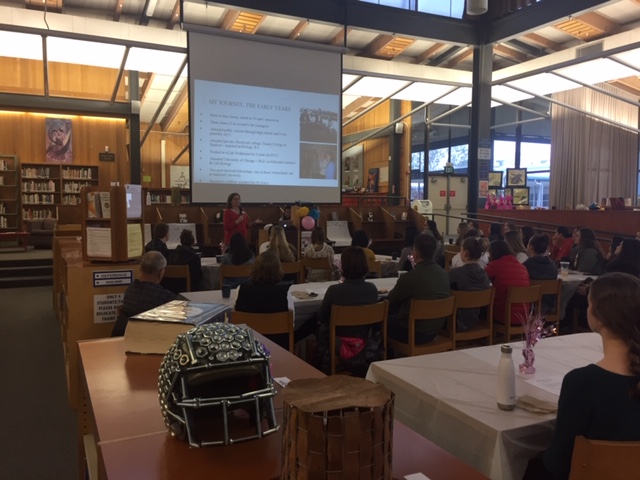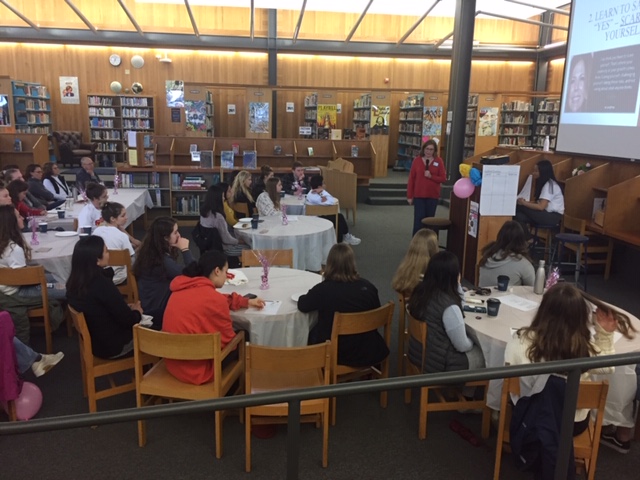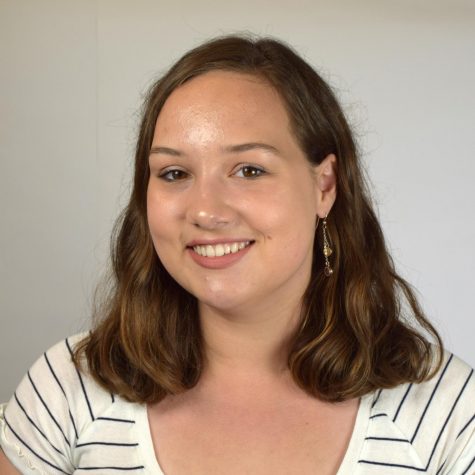Girl Boss Symposium Message: “Don’t Be Quiet”
March 8, 2019
Women’s Awareness on Campus (WAC) hosted a “Girl Boss” symposium featuring local Bay Area speakers from diverse career backgrounds who offered career and leadership advice in the library on March 2.
The symposium, which advertised itself as “an event meant to educate and inspire a generation of young women to be bold and powerful ‘girl bosses'” is the first event of its kind that WAC has hosted, blending career insights from professionals with feminist rhetoric.
Seniors and club co-presidents Lindsay Torres and Lila Chatterton organized the symposium with help from other WAC officers. Over 70 people attended, according to Torres, an “extremely successful” turnout.
“Our goal was to get people from the community together. It was open to anyone— middle schoolers, AUHSD district and beyond, parents, et cetera,” said Torres, explaining that the purpose of the “Girl Boss” theme was to “empower young women to be confident in their leadership skills and to not apologize for being powerful.”
Guest speakers at the symposium included keynote speaker Ellen Beasley, who spoke of her expertise in biotechnology and genomics, Norma Jo Waxman, a professor at UCSF, expert, and advocate in the field of reproductive and family medicine, Lisa Hardy, a business and operations manager at UC Berkeley, and Amy Worth, who currently sits as a member of the Orinda City Council in her 5th consecutive term.
All speakers addressed the demands of their unique careers, the path to their current job, as well as their experiences and unique challenges they’ve faced as women in the workforce, and shared a spectrum of personal definitions for what the term “girl boss” means to them.
Keynote speaker Beasley reflected on the often negative connotations of her title, as well as its uplifting potential. “One of the things about being a woman in a position where there are a lot of men is that you become, whether you like it or not, a role model,” said Beasley. “And that’s not a bad thing. I actually think it’s an honor, but it’s good to remember every once in a while,” she said.
“So, I don’t consider myself a “boss.” I think that in the workplace, it’s better to be a leader. I think servant leadership is very important,” said Hardy, explaining the importance of “leading by doing” above being a “boss” to symposium attendees.
Hardy emphasized how to navigate and overcome doubt, career setbacks, and explained the realities of workplace discrimination.
“What I have found is, being a woman of color in the workplace, I have to work 5 times as hard for no credit, and I have to have a 0% error rate just to keep my job. That’s not to get any kudos, that’s not to get a raise, that’s not to get any type of awards or achievements or accolades. That’s so that when it’ time to cut people, I don’t get cut,” she said.
The event also featured various breakout discussions, including defining “leadership” or being a “boss”, and aligning participants on a spectrum in response to a series of questions like “Do you consider yourself a feminist?”.
Senior Emily Tamkin attended the symposium and “wasn’t really sure what to expect going into it.” She said she ended up finding the career insights and life advice “really, really interesting.”
“It was interesting to here from people about how their experiences have been different because of their gender, and even some things about what we should be doing to improve our status in the workforce,” Tamkin said.
Speakers offered messages of career empowerment to females in attendance and spoke of the importance of diversity both in and outside of the workplace. “I will tell you that when I find myself in a position that it is not a diverse audience, like 30 men and me, I won’t be quiet. Show up. I mean, don’t do anything stupid, but find a reason to be there. Find a reason that’s not just sitting or politely taking notes,” said Beasley.
“It became a lot of really good career advice on top of it just being inspiring to see women succeeding in their field– especially those that were in careers that I might want to end up in,” said Tamkin.
The event asked attendees to “pay what they could,” raising over $600 in donations for the Oakland Elizabeth House. A clothing drive for the house was also held in the weeks leading up to the symposium, and both monetary and clothing donations went directly to families impacted by domestic abuse.


